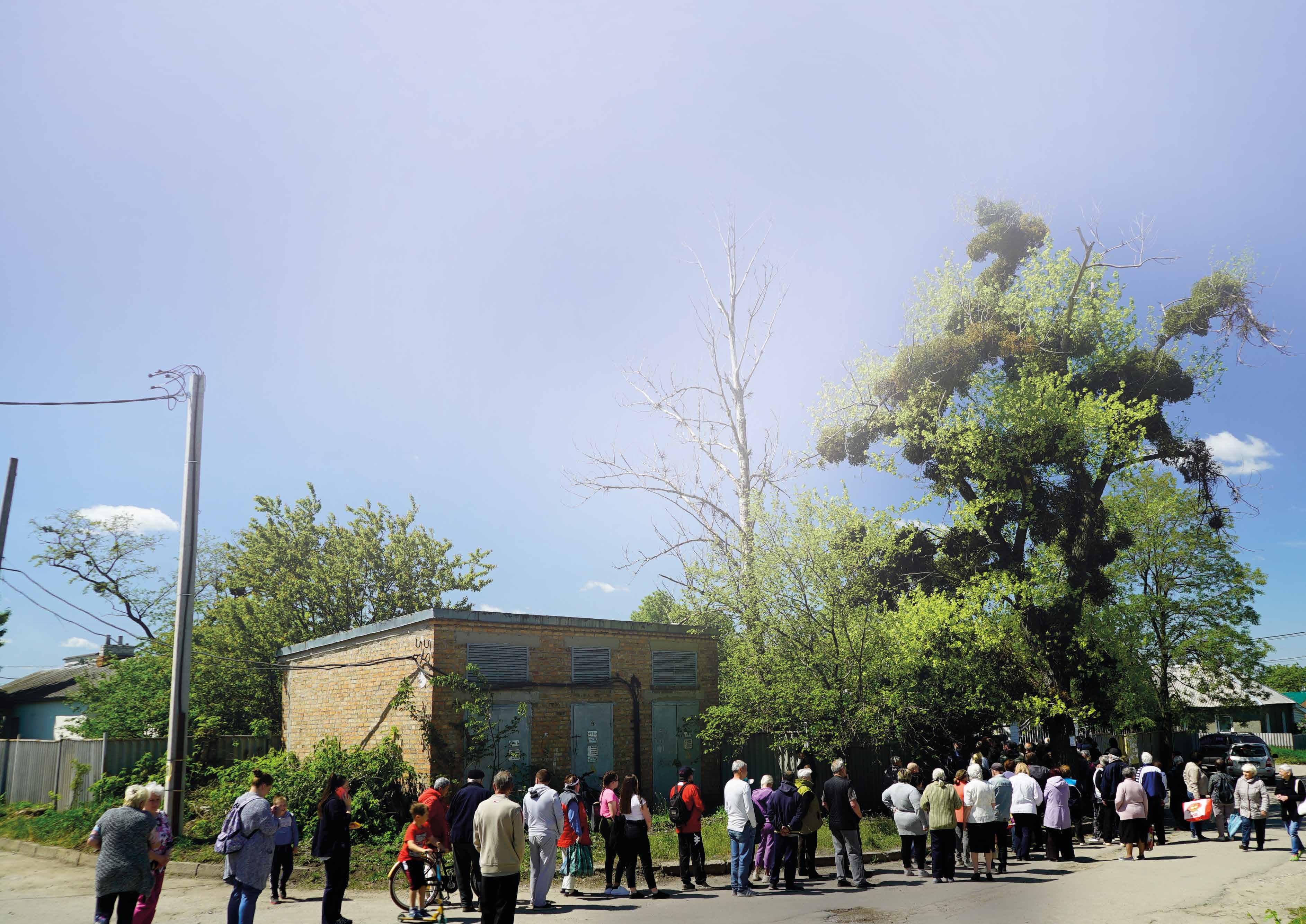
1 minute read
NEXT STEPS
The situation in Ukraine remains unpredictable, volatile and fluid, presenting ongoing challenges to DEC member charities and other humanitarian responders. With funds raised by the DEC’s Ukraine Humanitarian Appeal, DEC member charities and their partner organisations will continue to support people affected by the conflict until February 2025.
Inside Ukraine, DEC member charities will continue to provide immediate life-saving support to internally displaced people, people who have not been displaced but are in need of humanitarian assistance, and people who had previously fled but have now returned. This includes cash assistance (multipurpose cash, cash for protection, cash for shelter), hot meals, food parcels and hygiene kits, particularly for people in areas closer to the frontlines in the east of the country.
While some DEC member charities are increasingly focusing on providing assistance to people in eastern areas, needs remain high across the country, especially in rural locations where people are receiving less support from humanitarian aid agencies. DEC member charities will be assisting people with house repair in liberated areas and supporting collective centres in the west of the country. People are increasingly looking for long-term support so they can begin to regain some autonomy in their lives. DEC member charities will be providing livelihoods and mental health assistance to help strengthen people’s ability to support themselves.
The situation inside Ukraine has a significant bearing on future options for refugee communities in neighbouring countries. Many refugees in neighbouring countries are likely to stay there until the security situation in Ukraine stabilises. As more refugees began to receive social protection assistance from host governments, the focus for DEC member charities has been moving away from providing immediate support to refugee and host communities towards more longer-term support such as language lessons, employment and livelihoods support, and integrating children into local education systems. However, people’s needs are expected to change in the coming months with the gradual reduction of support by host governments and the level of humanitarian funding for the region. There are signs of reductions in the financial support being provided by host governments, and some refugee communities may have little choice but to return to Ukraine. DEC member charities increasingly may be required to fill the gap in providing support such as accommodation and cash assistance.
DEC member charities are regularly monitoring the situation on the ground and consulting with affected communities about their needs and priorities. The DEC-funded response will continue to be flexible in order to adapt activities and programmes to meet emerging needs among affected people both inside Ukraine and in neighbouring countries.










